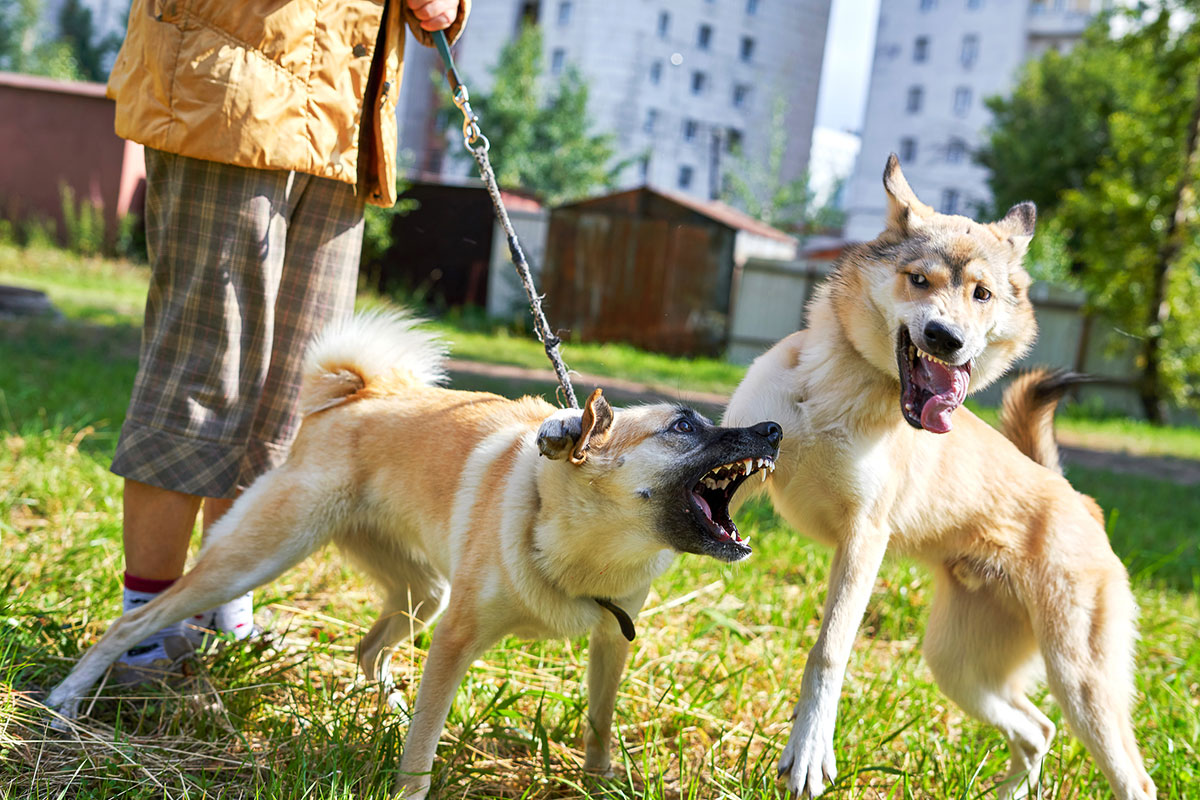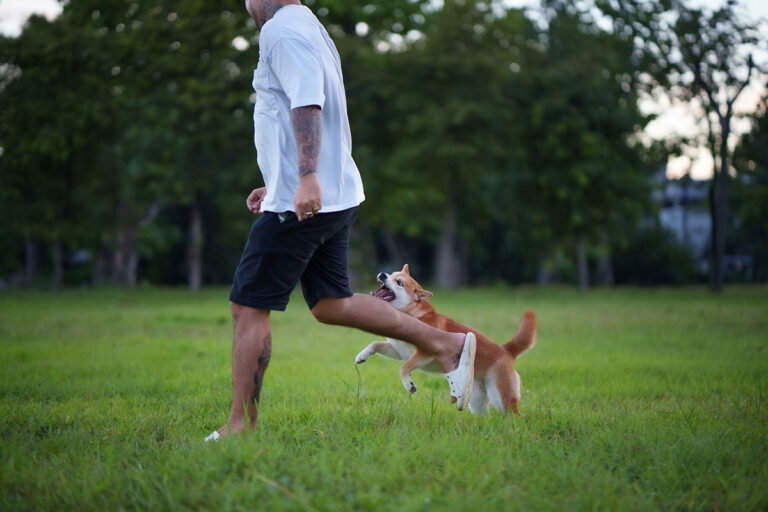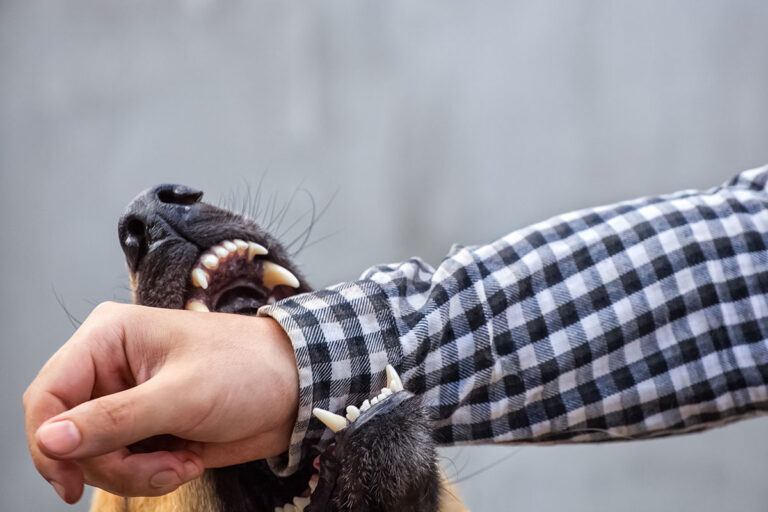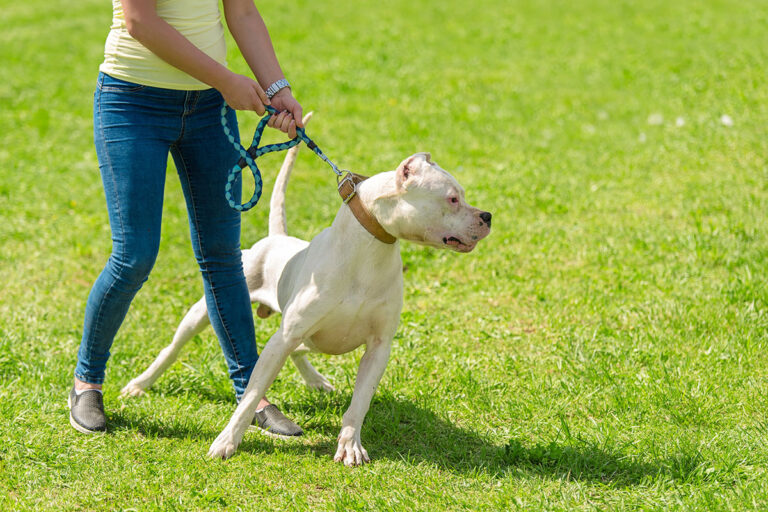What Are Ohio’s Dangerous Dog Laws (And How Do They Affect Your Claim?)

Experiencing a dog bite is a terrifying event, especially if it was caused by a breed known for its potential to cause serious harm, such as a Pit Bull or Rottweiler. The fear and shock can be even greater if you know the dog or if you were attacked somewhere you thought was safe.
Luckily, Ohio has specific legal protections designed to help you. Read on to understand what Ohio’s dangerous dog and dog bite laws mean for your injuries and how you can seek the justice you deserve.
What Are Ohio’s Dangerous Dog Laws?
Ohio has laws in place to keep everyone safe from animals that can hurt us. Under the state’s dangerous dog laws, dogs can be classified as “nuisance,” “dangerous,” or “vicious” based on their past behavior.
The designation of a dog usually happens after someone who has witnessed or experienced the dog’s disruptive behaviors files a complaint with local animal control authorities. Animal control will then investigate the situation to verify the behavior and determine whether the dog meets certain criteria.
If it does, owners are legally required to take a few precautions to mitigate the risk their pet poses.
What is considered a “nuisance” dog in Ohio?
Think of “nuisance” dogs as dogs with bad habits. Maybe they chase people on walks, act menacingly toward strangers, or try to nip without being provoked. These behaviors can be scary, but they’re usually not all-out attacks or the cause of severe injuries.
That said, owners of nuisance dogs must:
- Keep the dog on a leash. A leashed dog can’t chase or menace people.
- Confine them securely at home: Nuisance dogs need a safe space on their own property. A secure fence or kennel can help prevent them from getting out and potentially scaring someone.
- Undergo training. While not required by law, training can be a game-changer. A well-trained dog is a happy dog, and it can help address the underlying reasons behind the nuisance behavior.
What is considered a “dangerous” dog in Ohio?
Under Ohio’s dangerous dog statutes, a dog can be labeled as dangerous if it has caused injury to a person or killed another dog without being provoked.
Owners of dogs classified as dangerous have certain legal obligations, including:
- Securing adequate confinement. The owner needs to make sure the dog is locked up properly on their property in a way that can’t be easily broken free.
- Posting warning signs. They need to post clear warning signs so anyone visiting or walking by knows there’s a dangerous dog on the premises.
- Leashing and muzzling. If the dog ever leaves the owner’s property, it has to be on a leash and wear a muzzle to prevent any chance of an attack.
What is considered a “vicious” dog in Ohio?
A “vicious” dog is one that, again without provocation, has seriously injured or killed a person.
Owners of “vicious” dogs face additional stringent requirements under Ohio’s dangerous dog laws, including:
- Enhanced confinement measures. Vicious dogs must be securely confined in a locked pen or enclosure with adequate size and strength to prevent escape. The enclosure must have secure sides and a secure top, and if it has a bottom secured to the sides, the bottom must be embedded into the ground to prevent the dog from digging out.
- Strict leashing requirements. When taken out of their enclosure, vicious dogs must be muzzled and restrained with a chain or other strong leash. The person handling the leash must be capable of controlling the dog.
- Liability insurance. In Ohio, the owner of a vicious dog must maintain a liability insurance policy providing coverage of not less than $100,000. This ensures that if an accident does unfortunately happen, victims can receive compensation swiftly without having to go through a lengthy legal battle.
- Registration as a vicious dog. Owners must register the animal as a vicious dog with local authorities, providing all residents and law enforcement in the area with knowledge of the potential danger.
What Are Ohio’s Dog Bite Laws?
Under Ohio’s dog bite laws, the owner of a dog is responsible for controlling their animal. This means that barring certain exceptions where the dog was provoked, the owner or keeper is automatically held accountable for any injuries, deaths, or personal losses caused by the dog. You do not have to prove that the owner was careless or knew the dog was dangerous—the focus is on the dog’s actions, not the owner’s intentions.
If you or your child has been bitten by a dog, you may be entitled to recover damages for: pain, mental suffering, permanent scarring, temporary or permanent disability, loss of future earning capacity, loss of quality of life, medical expenses to treat the injury, cosmetic services to improve the appearance of the injury, psychological counseling, damaged clothing, and loss of income.
How Do Ohio’s Dangerous Dog Statutes Affect Your Claim?
If you’ve been bitten or attacked by a dog that’s been already labeled as dangerous or vicious, Ohio’s dangerous dog statutes can significantly influence your personal injury claim.
Here’s how:
- Proof of liability. Because the dog was already labeled dangerous or vicious, proving the owner was negligent will be easier. They knew the risk their pet posed and had a legal responsibility to keep it from hurting anyone.
- Insurance claims. Owners of dangerous and vicious dogs are required to have liability insurance. This means there might be a specific insurance policy set up to cover exactly this kind of situation, making it easier for you to get the compensation you deserve.
While navigating these claims might be less complex due to the clear liability, the process can still be daunting. If you or your child has been bitten by a dog, make sure to contact an attorney specializing in dog bites immediately.
There’s some good news is: many cases can be resolved without going to court, sparing you additional stress. Our priority at Slater & Zurz is our clients’ well-being—physical, emotional, and financial. We will dive deep into the nature and severity of your injuries to build the most compelling case possible.
Contact us at 330-762-0700 for a free consultation with a dog bite attorney today.
Frequently Asked Questions
- What dog breeds are banned in Ohio?
- Ohio does not have a statewide ban on specific dog breeds. Instead, the state focuses on the behavior of individual dogs to determine if they should be classified as “dangerous” or “vicious.”
- Are Pitbulls illegal in Ohio?
- No. The state does not enforce breed-specific legislation at the state level, so Pitbulls, like any other dog breed, are legal. However, individual cities or municipalities in Ohio may have their own rules regarding Pitbulls.
- Are certain breeds automatically classified under the dangerous dog statute in Ohio?
- There’s a common misconception that certain dog breeds, like Pitbulls, are automatically considered “dangerous” under Ohio’s dangerous dog laws. However, the classification of a dog as “dangerous” or “vicious” actually depends on the behavior of the individual dog, not its breed.
- What is the Ohio dangerous dogs list?
- There are several “high-risk” breed of dogs that account for most dog bites in the country, which includes: Pitbulls, Rottweilers, German Shepherds, Alaskan Malamutes, Doberman Pinschers, Chows, Great Danes, Saint Bernards, Akitas, Huskies.




